Grease Trap Pumping for Restaurants: Expert Tips
Grease trap pumping for restaurants: Essential maintenance for plumbing health, regulatory compliance, and odor prevention.
Grease trap pumping is vital for maintaining your restaurant’s plumbing and ensuring compliance with health regulations. By regularly servicing your grease traps, you prevent clogs, foul odors, and potential fines. Let’s dive into the essentials of grease trap pumping for restaurants and how it can benefit your business.
Table of Contents
Key Takeaway
- Regular maintenance of grease traps prevents plumbing issues and ensures compliance with health standards.
- Grease traps catch fats, oils, and grease (FOG) before they enter the sewer system.
- Professional grease trap pumping services offer expertise, proper equipment, and adherence to regulations.
Why Grease Trap Pumping Is Essential for Restaurants
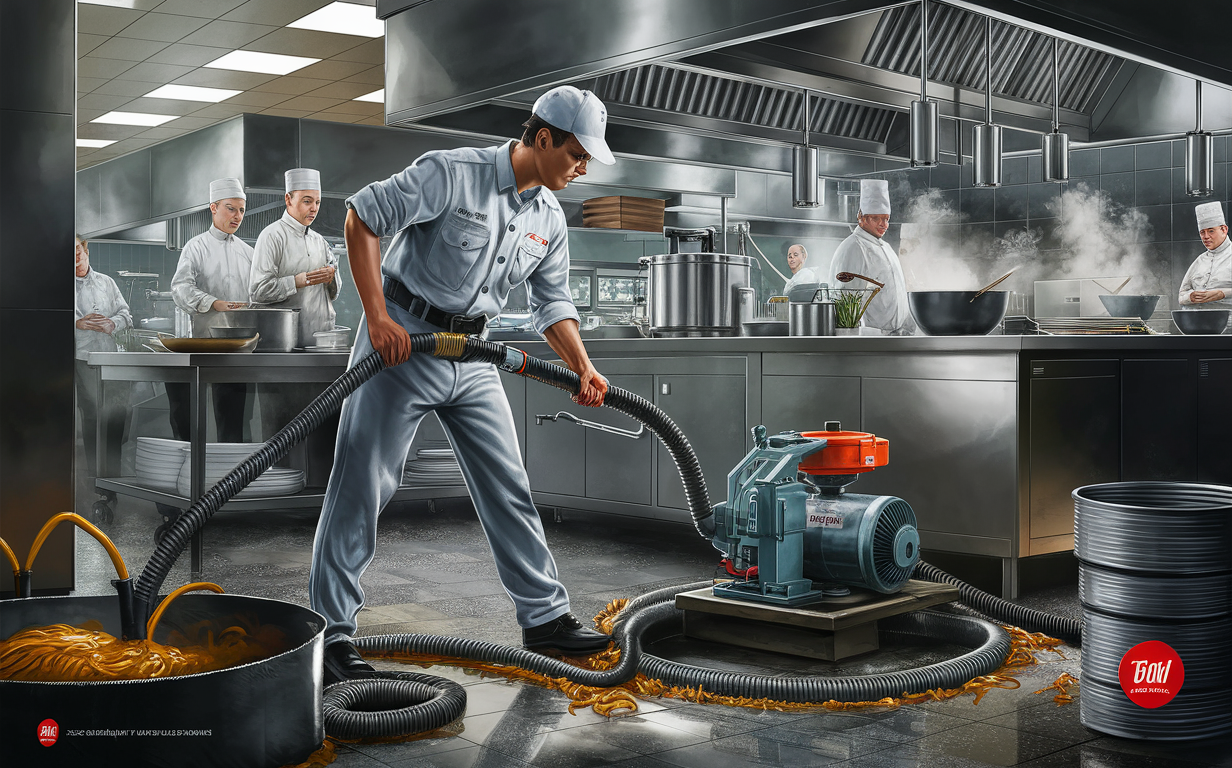
Grease traps play a crucial role in keeping your restaurant’s plumbing system running smoothly. They capture fats, oils, and grease (FOG) before these substances can enter the municipal sewer system. Without proper maintenance, these traps can overflow, leading to unpleasant blockages, bad odors, and costly repairs.
Understanding How Grease Trap Pumping for Restaurants
Grease traps are designed to slow down the flow of wastewater, allowing FOG to separate from the water. The grease floats to the top, solids settle at the bottom, and the cleared water exits the trap. Over time, the accumulation of grease and solids necessitates professional pumping to maintain the trap’s efficiency.
How Often Should Grease Traps Be Pumped?
The frequency of grease trap pumping depends on several factors:
- Size of the trap
- The volume of grease produced
- Type of food being prepared
Typically, monthly or quarterly servicing is recommended. Some local regulations may require more frequent maintenance.
Benefits of Professional Grease Trap Pumping for Restaurants
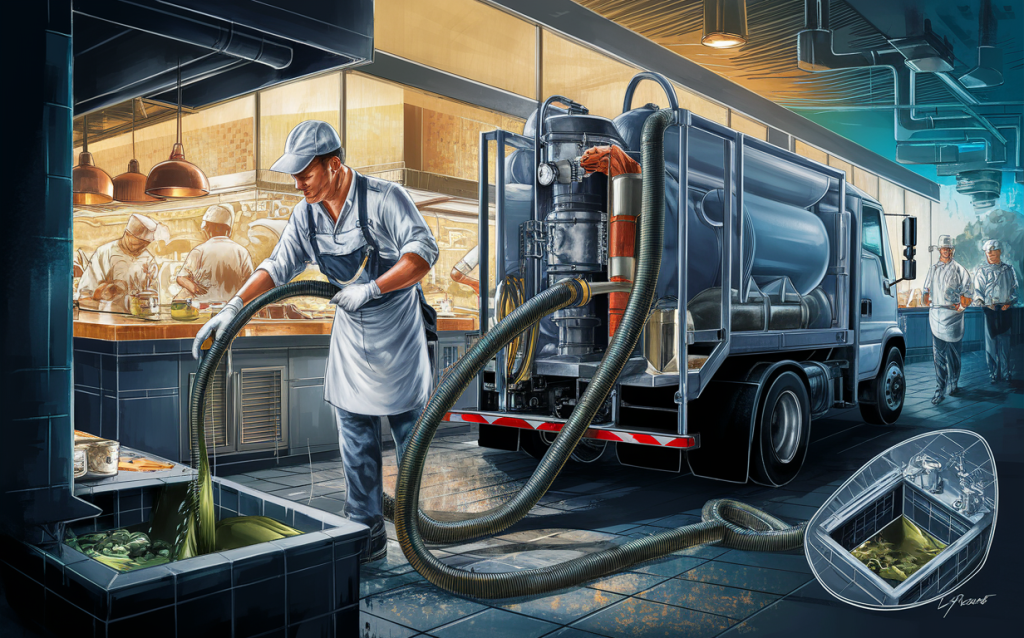
- Prevent Blockages: Regular pumping prevents blockages, ensuring smooth drainage.
- Eliminate Odors: Accumulated grease can produce foul odors. Regular pumping keeps your restaurant smelling fresh.
- Avoid Fines: Non-compliance with local regulations can result in hefty fines. Professionals ensure your grease traps meet all requirements.
- Extend Equipment Life: Proper maintenance extends the life of your plumbing and grease trap systems.
- Health Compliance: Maintains compliance with health codes, preventing shutdowns and lost business.
Signs Your Grease Trap Needs Pumping
- Slow Drainage: Indicates a full or clogged grease trap.
- Foul Odors: A sign of excessive buildup.
- Grease in Sewer Line: An overflowing grease trap can push grease into the sewer line.
- Visible Overflow: Grease and solids spilling out of the trap.
Steps in Professional Grease Trap Pumping
- Inspection: Professionals inspect the trap for signs of wear or damage.
- Pumping: All accumulated FOG and solids are removed using specialized equipment.
- Cleaning: The trap is cleaned to remove any residual grease.
- Documentation: Service is documented to ensure compliance with local regulations.
Grease Trap Pumping: DIY vs. Professional Services
DIY Maintenance:
- Pros: Cost savings
- Cons: Lack of proper equipment, potential non-compliance with regulations, higher risk of incomplete cleaning
Professional Services:
- Pros: Expertise, proper equipment, regulatory compliance, thorough cleaning
- Cons: Cost
Choosing the Right Grease Trap Pumping Service
- Experience: Choose a company with extensive experience in grease trap maintenance.
- Licensing and Insurance: Ensure they are properly licensed and insured.
- Reputation: Check reviews and ask for references.
- Compliance: Ensure they follow all local regulations and provide proper documentation.
Common Myths About Grease Trap Pumping for Restaurants
- Myth: “I can manage the grease trap myself without professional help.”
- Fact: DIY maintenance often leads to incomplete cleaning and potential non-compliance.
- Myth: “Grease traps only need to be pumped annually.”
- Fact: Most traps require monthly or quarterly servicing.
- Myth: “Grease traps are only necessary for large restaurants.”
- Fact: Any establishment producing FOG needs a grease trap.
Frequency of Grease Trap Pumping
| Type of Restaurant | Average Pumping Frequency |
|---|---|
| Fast Food | Monthly |
| Casual Dining | Every 2-3 months |
| Fine Dining | Quarterly |
| Cafes/Bakeries | Every 3-4 months |
Comparison of DIY vs. Professional Grease Trap Pumping
| Criteria | DIY Maintenance | Professional Services |
|---|---|---|
| Cost | Lower upfront cost | Higher upfront cost |
| Equipment Needed | Basic tools | Specialized equipment |
| Compliance | Risk of non-compliance | Guaranteed compliance |
| Thoroughness | Often incomplete cleaning | Thorough and effective |
| Time and Effort | Time-consuming | Quick and efficient |
Top Tips for Grease Trap Maintenance
- Schedule Regular Service: Set up a maintenance schedule with a professional service.
- Scrape Plates: Scrape food waste into the trash before washing dishes.
- Avoid Pouring Grease: Never pour grease directly down the drain.
- Use Grease Interceptors: Install grease interceptors on sinks and dishwashers.
- Train Staff: Ensure all staff are trained on proper grease disposal practices.
How to Identify a Problem with Your Grease Trap
- Water Backups: Overflowing sinks and floor drains.
- Grease in Drains: Visible grease in drains or sewer lines.
- Unpleasant Odors: Persistent bad smells in the kitchen or near drains.
- Slow Draining Sinks: Indicates potential blockage in the grease trap.
The Role of Local Regulations
Local health departments often have specific requirements for grease trap maintenance. These regulations are designed to protect the public sewer system and the environment. Non-compliance can result in fines, shutdowns, and reputational damage.
Frequently Asked Questions About Grease Trap Pumping for Restaurants
Q: How often should a grease trap be cleaned? A: Typically, grease traps should be cleaned every 1-3 months, depending on usage.
Q: Can I clean the grease trap myself? A: While possible, DIY cleaning often results in incomplete maintenance. Professional services ensure thorough cleaning and compliance.
Q: What happens if I don’t maintain my grease trap? A: Neglecting maintenance can lead to blockages, foul odors, plumbing issues, and potential fines.
Benefits of Partnering with Texway Wastewater Services
- Expertise: Our team has years of experience in grease trap maintenance.
- Proper Equipment: We use specialized vacuum trucks and tools.
- Compliance: We ensure your grease traps meet all local regulations.
- Prompt Service: Same-day service is often available.
- Customer Satisfaction: We pride ourselves on excellent communication and spotless clean-up.
Contact Us
If you’re a restaurant owner in the Burleson or Johnson County area, trust Texway Wastewater Services for all your grease trap pumping needs. Call us or schedule your service online.
Conclusion
Maintaining your restaurant’s grease trap is essential for preventing plumbing issues and ensuring compliance with health regulations. Regular professional pumping services offer peace of mind and allow you to focus on running your business smoothly. Make Grease Trap Pumping for Restaurants a priority and partner with experts to keep your operations efficient and trouble-free.

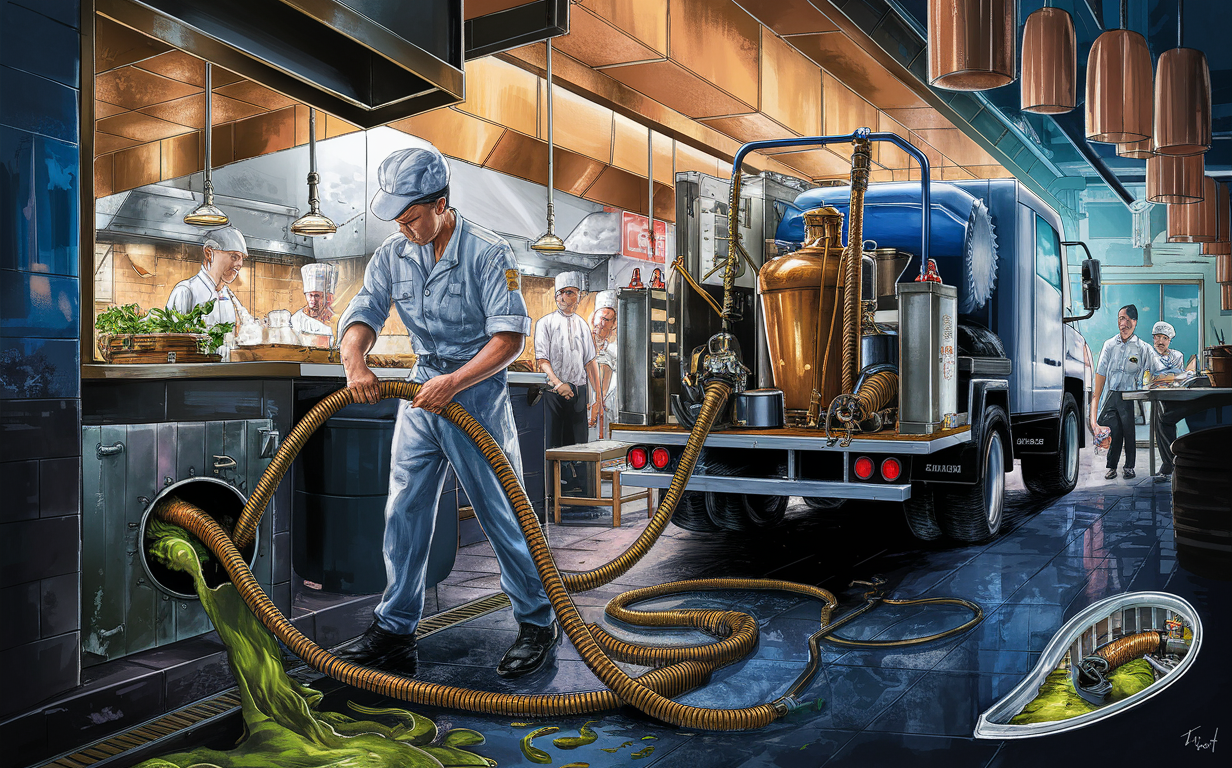
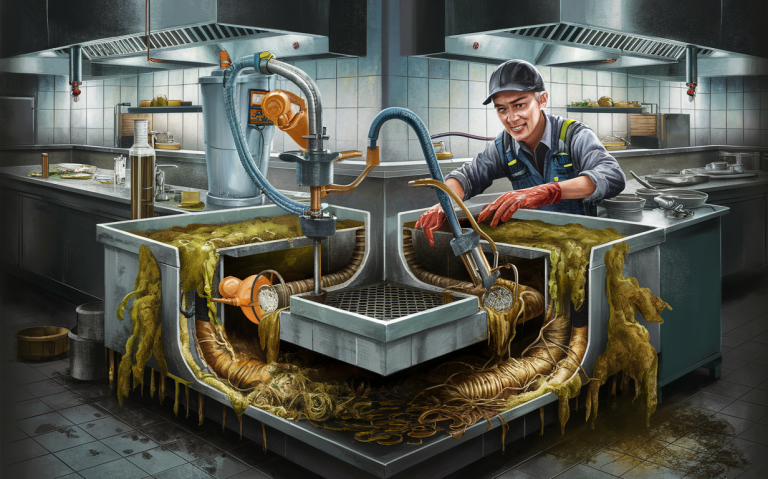
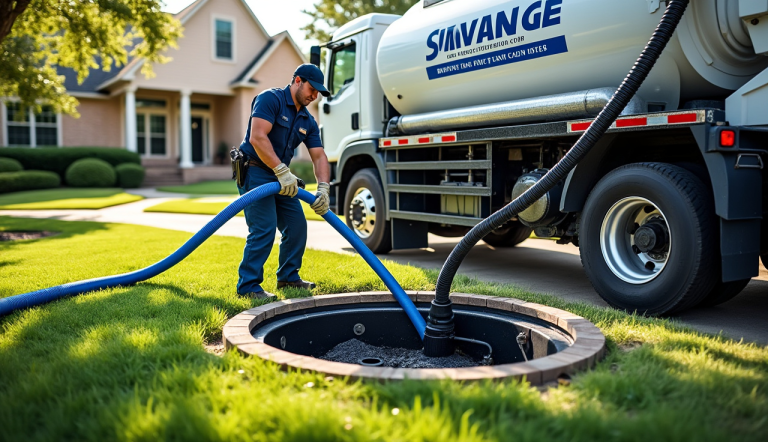
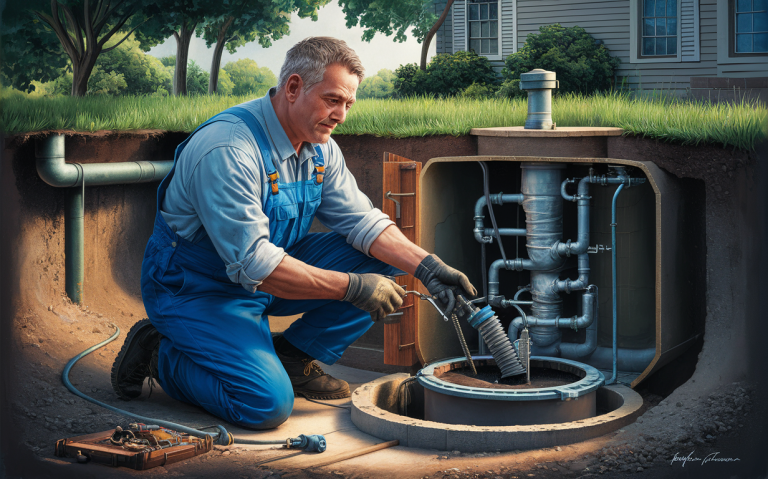
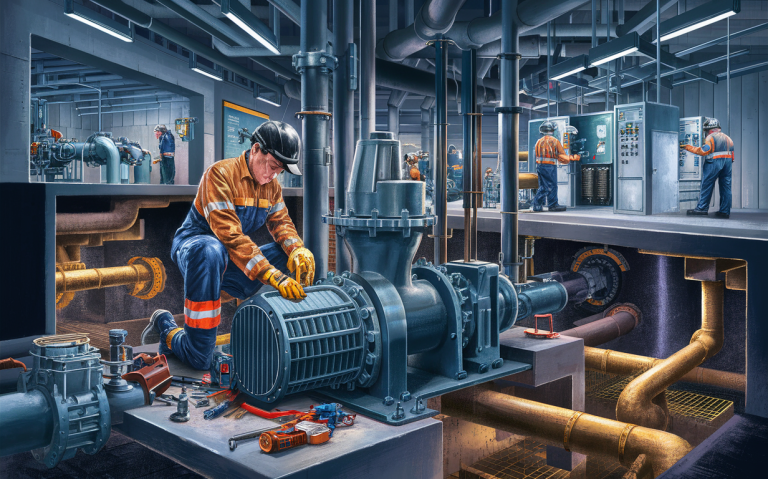

 Texway Wastewater Services is a septic, wastewater, and excavation company based out of Burleson, Texas and serving the surrounding areas. We specialize in
Texway Wastewater Services is a septic, wastewater, and excavation company based out of Burleson, Texas and serving the surrounding areas. We specialize in